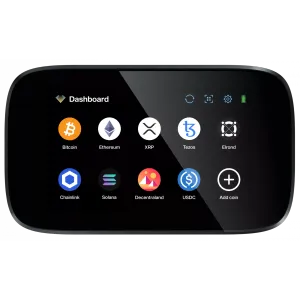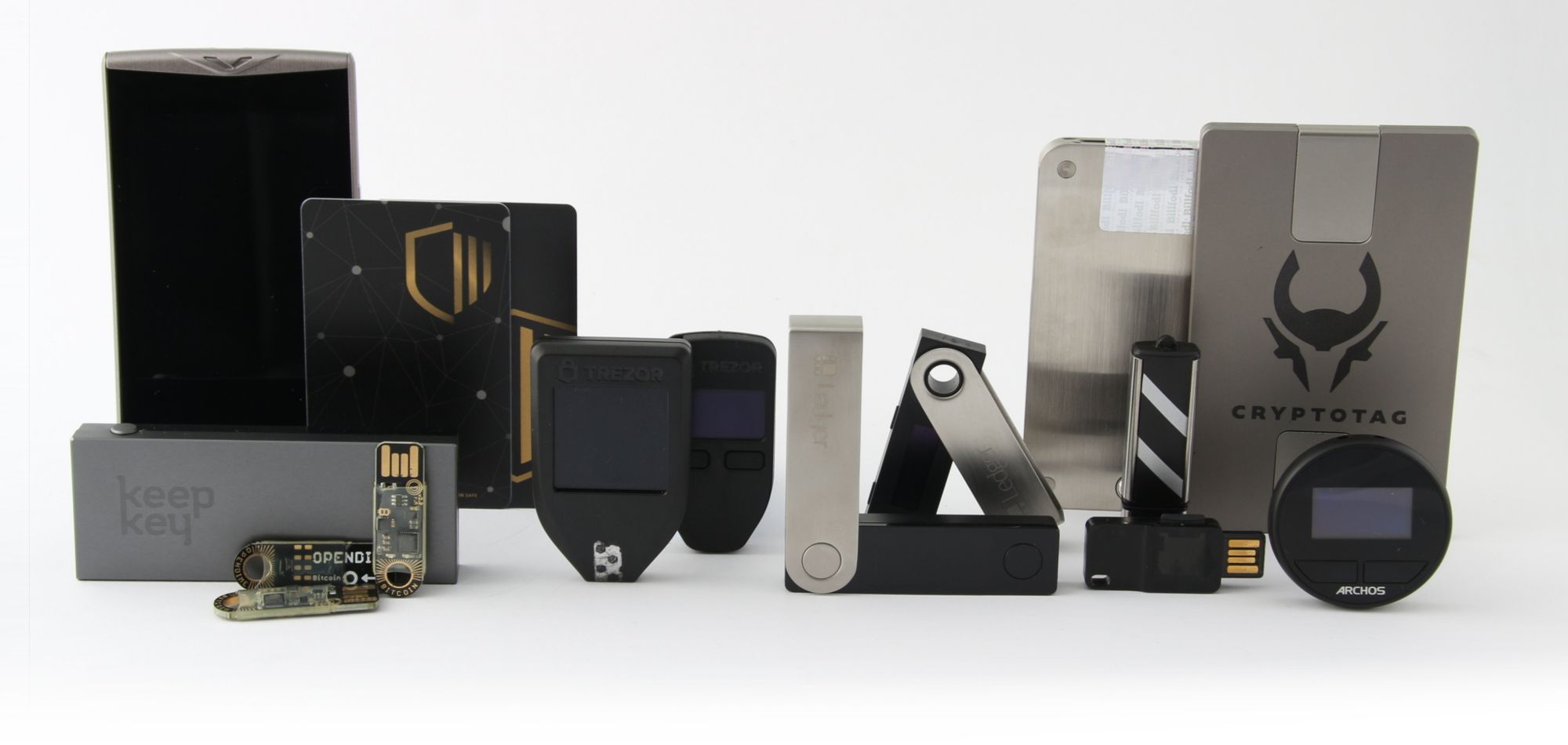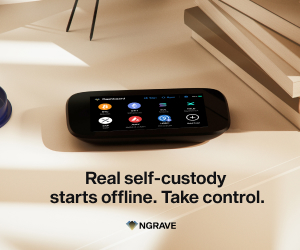Introduction: What Makes a Cryptocurrency Wallet Safe and Why It Matters
Hardware wallets like the NGRAVE Zero and Trezor Safe 5 are the safest cryptocurrency wallets available in 2025. These physical devices store your private keys offline, making them immune to online threats that compromise hot wallets and exchange accounts.
When searching for the best crypto wallets or top crypto wallets, it’s important to consider which options are most suitable for your specific needs, whether you prioritize security, usability, or multi-chain support.
Cryptocurrency wallets are essential tools for managing, storing, and securing your digital assets. They come in two main types: custodial wallets, which are managed by a third party, and non-custodial wallets, which are user-controlled, giving you full ownership of your private keys.
Many cryptocurrency wallets also offer features like built-in exchanges and staking options for users. To find the best crypto wallet or best wallet for your needs, compare options based on security, ease of use, and supported cryptocurrencies.
In this comprehensive guide, you’ll discover the fundamental security principles of crypto wallets, compare the top secure wallet options, and learn a step-by-step process to implement maximum security for your digital assets.
We’ll cover everything from understanding private keys and cold storage to avoiding critical mistakes that have cost investors billions, making this your go-to resource for finding the best crypto storage solutions.
Wallet security directly determines whether your crypto assets remain under your control or become vulnerable to hackers, exchange collapses, and user errors.
With over $3.8 billion stolen from cryptocurrency platforms in 2022 alone, selecting the right crypto wallet for your needs with proper security implementation isn’t optional—it’s essential for protecting your crypto journey.

Understanding Cryptocurrency Wallet Security: Key Concepts and Definitions
Core Security Definitions
A cryptocurrency wallet is a digital tool that manages your private and public keys, enabling you to securely store and transact with bitcoin, ethereum, and other digital coins. The wallet doesn’t actually hold your crypto assets—instead, it stores the cryptographic keys that prove ownership of funds recorded on the blockchain.
Private keys are secret codes that authorize cryptocurrency transactions. Think of them as the master password to your digital assets. Anyone with access to your private key has complete control over the associated funds. Public keys, on the other hand, are similar to bank account numbers, revealing your cryptocurrency balance without compromising security. They work alongside private keys to create wallet addresses where others can send you crypto.
A seed phrase (also called a recovery phrase) is a sequence of 12 or 24 random words that can restore access to your entire wallet. This phrase essentially represents all your private keys in human-readable format.
Cold storage refers to keeping private keys completely offline, disconnected from the internet. Hot wallets remain connected to the internet for convenience but face higher security risks from online threats.
Security Relationships and Threat Landscape
The relationship between wallet types and security levels follows a clear hierarchy. Hardware wallets provide maximum security by storing private keys offline on dedicated physical devices.
Software wallets offer convenience but expose private keys to internet-connected devices.
Custodial wallets managed by exchanges create counterparty risk where you don’t control your own keys. In these scenarios, users may permanently lose access to their funds if they misplace private keys or if the platform experiences a security breach or bankruptcy.
Key security features for cryptocurrency wallets include cold storage for offline private key storage, multi-signature support, two-factor authentication, and biometric authentication.
Zengo Wallet uses Multi-Party Computation (MPC) technology to enhance security by splitting private keys.
Common attack vectors targeting crypto wallets include:
- Phishing attacks tricking users into entering seed phrases on fake websites
- Malware stealing private keys from infected computers and mobile devices
- Exchange hacks compromising centralized platforms holding user funds
- SIM swapping attacks targeting two-factor authentication
- Clipboard malware replacing wallet addresses during copy-paste operations
The fundamental security principle “not your keys, not your coins” means that only wallets where you control the private keys provide true ownership of your digital assets.
Why Wallet Security is Critical in Cryptocurrency

Recent statistics underscore the critical importance of proper wallet security. In 2022, hackers stole $3.8 billion from cryptocurrency platforms, with 64% of losses occurring through DeFi protocols and cross-chain bridges.
The collapse of major exchanges like FTX ($8 billion in user funds frozen), Celsius ($4.7 billion lost), and Voyager Digital ($5.9 billion affected) demonstrated the risks of custodial wallet services.
Hardware wallets have maintained an exceptional security record. No confirmed cases exist of remote hacking when hardware wallets are used with proper security practices. Ledger reports over 6 million devices sold globally with zero successful remote attacks on properly configured wallets.
Insurance coverage varies dramatically between wallet types. Most hardware wallet manufacturers don’t provide insurance since users maintain full control, but the track record speaks for itself.
Some custodial wallet providers offer limited insurance, typically covering only platform breaches, not user errors or individual account compromises.
The 20% of all bitcoin that remains permanently inaccessible—estimated at over $140 billion—highlights both the importance of proper backup procedures and the irreversible nature of cryptocurrency transactions.
o avoid such losses, it is essential to store bitcoin securely using methods like hardware wallets or cold storage, which are specifically designed to protect your assets from theft or accidental loss.
Understanding Wallet Types for Maximum Security
Discover the perfect crypto wallet to safeguard your precious digital assets! The exciting world of crypto wallets offers you two exceptional choices—hot wallets that stay connected to the internet for incredible convenience, and cold wallets that keep your private keys safely offline for maximum protection.
The choice between a hot and cold wallet depends on individual needs, with cold wallets recommended for security for large holdings or long-term storage.
Each wallet type provides a beautiful balance of convenience and security, so understanding their amazing strengths and weaknesses is absolutely essential for anyone serious about protecting their crypto!
Hot wallets, including fantastic mobile apps and browser extensions, are perfect for quick transactions and daily use, though they face more exposure to online threats. A mobile wallet is a type of hot wallet available on smartphones, offering user-friendly access, multi-chain support, and the convenience of managing your crypto on the go.
Some users choose to store their crypto directly on a crypto exchange, but this method carries additional risks compared to using dedicated wallets, as exchanges may be more vulnerable to hacks or security breaches.
Hot wallets are always connected to the internet, making them convenient for daily transactions but more vulnerable to hacking or malware—we’ve got you covered! By exploring the different types of crypto wallets available, you can make informed decisions about how to store and manage your digital assets securely and confidently, whether you’re a casual user or a seasoned investor.
Start planning your crypto security strategy today! To set up a hot wallet, you must follow the instructions to create an account, set a strong password, and create a recovery phrase.
Hardware Wallets: The Gold Standard for Security
Discover the ultimate protection for your digital treasures with hardware wallets – the premier security solution that stands above all others! There are a variety of hardware wallet options available for users seeking maximum security, each designed to meet different needs and preferences.
These exceptional physical devices, featuring world-class hardware wallet brands like Trezor and Ledger, are expertly crafted to keep your private keys safely offline and completely out of reach from any hackers. Hardware wallets store your private keys offline, protecting them from online threats and ensuring your assets remain secure.
Hardware wallets are considered the ‘gold standard’ for security in cryptocurrency storage. By perfectly isolating private keys from internet-connected devices, hardware wallets deliver an unmatched defense against phishing, malware, and countless online threats that adventure seekers in the crypto world face.
Ledger, a popular hardware wallet known for its security and user-friendly features, supports over 5,000 cryptocurrencies and integrates with software wallets like MetaMask and Guarda.
Explore the innovative Ellipal X Card Wallet, which introduces a revolutionary approach using cutting-edge NFC-enabled smart cards – completely eliminating the need for traditional seed phrases and dramatically reducing any risk of unauthorized access!
With these remarkable hardware wallets, your precious crypto assets stay perfectly secure even if your computer or smartphone becomes compromised, making them the ultimate choice for long-term storage and significant holdings.
Whether you’re safeguarding bitcoin, ethereum, or other exciting digital coins, hardware wallets provide the perfect peace of mind and exceptional security for your thrilling crypto journey – we’ve got you covered every step of the way!
Software Wallets: Balancing Convenience and Protection
Discover the perfect solution for easy access to your digital assets with software wallets! These incredible wallets operate on your everyday devices like computers and smartphones, giving you the ultimate convenience for managing your crypto.
While they’re connected to the internet and more susceptible to online threats compared to hardware wallets, their user-friendly interface and lightning-quick setup make them the premier choice for everyday transactions and managing smaller amounts of your precious crypto holdings.
The Exodus Wallet stands as an exceptional example of software wallet excellence, supporting over 100 cryptocurrencies with its beautifully intuitive design that’s especially perfect for beginners! Explore the variety of software wallet options available—desktop, mobile, and web-based—each offering amazing features tailored to suit your unique needs.
While these wallets provide unmatched convenience and flexibility for your crypto journey, remember that software wallets are your ideal companion for active trading and spending adventures, rather than long-term storage of your larger crypto treasures.
Non-Custodial Wallets: Full Control, Full Responsibility
Discover the ultimate freedom in digital asset management with non-custodial wallets! These exceptional tools empower you to embark on your crypto journey with complete independence, allowing you to manage your private keys without relying on third-party custodial wallet providers.
Experience the premier level of ownership where you become the sole guardian of your digital assets, with exclusive access to your funds. The Coinbase Wallet stands as a world-class example of this revolutionary technology, offering users the perfect solution to store private keys directly on their mobile devices while exploring decentralized apps with confidence and security.
Additionally, Coinbase Wallet integrates easily with the Coinbase exchange account for transferring assets. Trust Wallet was acquired by Binance and offers strong multi-chain support.
Plan your crypto adventure wisely! While non-custodial wallets deliver unmatched security and privacy benefits, they place the essential responsibility for safeguarding your private keys and recovery phrases entirely in your capable hands.
Always download non-custodial wallets from the official wallet provider’s website or app store to ensure authenticity and security. Losing access to your wallet or private keys can result in permanent loss of your valuable crypto assets, so it’s crucial to follow our recommended best practices for backup and security planning.
For those adventurous souls who value true autonomy and complete control over their financial destiny, non-custodial wallets represent the ultimate tool for navigating the exciting crypto landscape with confidence!
Using Multiple Wallets: Diversifying Your Security
Plan your perfect crypto security setup with smart diversification strategies that’ll keep your digital assets safe and sound! Diversifying your crypto storage by using multiple wallets is the ultimate approach to enhance security and minimize risk like never before.
By spreading your digital treasures across different wallet types—such as a hot wallet for those quick daily transactions and a cold wallet for rock-solid long-term storage—you can protect yourself against potential losses if one wallet gets compromised.
This exceptional approach allows you to enjoy the convenience and ease of software wallets for lightning-quick access while relying on the world-class security of hardware or cold wallets for your main holdings!
Discover the easiest ways to manage your crypto portfolio with multiple wallet options that we’ve got covered for you! Many crypto investors also use a winning combination of hardware wallets, software wallets, and even browser extension wallets like the Phantom Wallet, which supports multiple blockchains and is absolutely ideal for managing various cryptocurrencies with ease.
Phantom Wallet is a user-friendly wallet specifically designed for the Solana blockchain and has expanded to support Ethereum and Polygon.
By leveraging multiple wallets, you can tailor your security setup to your specific needs perfectly, ensuring that your crypto assets remain safe, accessible, and under your complete control at all times throughout your crypto journey!
Security Features Comparison Table
| Wallet Type | Offline Storage | Multi-Factor Auth | Open Source | Price Range | Security Rating | Supported Assets | User Interface | Customer Support | Android Devices & Mobile Access | Transaction Fees |
|---|---|---|---|---|---|---|---|---|---|---|
| NGRAVE Zero | ✅ Full | PIN + Passphrase | Partial | $149 | AAA | 5,500+ (wallet supports Binance Smart Chain, Ethereum, Bitcoin, and more) | Intuitive touchscreen user interface | Email & ticket support | Compatible with Android devices via Bluetooth; mobile access through Ledger Live app | No wallet fee, but network transaction fees apply |
| Trezor Safe 5 | ✅ Full | PIN + Passphrase | ✅ Full | $219 | AAA | 1,600+ (wallet supports Bitcoin, Ethereum, Binance Smart Chain, and more; Trezor hardware wallets) | Touchscreen user interface | Email & knowledge base | Compatible with Android devices via USB OTG; mobile access with third-party apps | No wallet fee, but network transaction fees apply |
| Keystone Pro 3 | ✅ Full | Biometric + PIN | ❌ No | $59 | AA | 6,000+ (wallet supports Binance Smart Chain, Ethereum, Bitcoin, and more) | Simple card-based user interface | Email & in-app support | Full support for Android devices; mobile access via Tangem app | No wallet fee, but network transaction fees apply |
| MetaMask | ❌ Hot | Password + 2FA | ✅ Full | Free | A | Ethereum + EVM (wallet supports Binance Smart Chain, Polygon, and more) | User-friendly browser and mobile user interface | Community & ticket support | Available on Android devices; mobile access via MetaMask app | No wallet fee, but network transaction fees apply |
| Coinbase Wallet | ❌ Hot | Password + 2FA | ❌ No | Free | A | Multi-chain (wallet supports Ethereum, Binance Smart Chain, Solana, and more) | Clean, easy-to-navigate user interface | 24/7 customer support | Available on Android devices; mobile access via Coinbase Wallet app | No wallet fee, but network transaction fees apply |
| Trust Wallet | ❌ Hot | Password + Biometric | ❌ No | Free | A | Multi-chain (wallet supports Binance Smart Chain, Ethereum, NFTs, and more) | Simple, intuitive user interface | In-app & online support | Full support for Android devices; mobile access | No wallet fee, but network transaction fees apply |
| Solana Phantom Wallet | ❌ Hot | Password + 2FA | ❌ No | Free | A | Solana (wallet supports Solana blockchain, NFTs, and DeFi) | Modern, beginner-friendly user interface | Email & help center | Available on Android devices; mobile access via Phantom app | No wallet fee, but network transaction fees apply |
| Zengo Wallet | ❌ Hot | MPC + Biometric | ❌ No | Free | AA | Multi-chain (wallet supports Bitcoin, Ethereum, Binance Smart Chain, NFTs, and more) | Highly accessible, secure user interface | 24/7 in-app customer support | Full support for Android devices; mobile access | No wallet fee, but network transaction fees apply |
Security ratings based on independent audits and track record. Hardware wallets achieve higher ratings due to offline private key storage.
Step-by-Step Guide to Implementing Maximum Wallet Security
Step 1: Choose the Right Secure Wallet Type
Assess your security needs versus convenience requirements. For holdings over $1,000 or long-term storage, hardware wallets provide essential security. For frequent trading or DeFi interactions, you may need multiple wallets—a hardware wallet for secure storage and a hot wallet for daily transactions.
Hardware wallet selection checklist:
- NGRAVE Zero: Best for beginners, excellent mobile app integration, supports most cryptocurrencies
- Trezor Safe 5: Ideal for open-source preference, superior transparency, touchscreen interface
- Ellipal X-Card: Most user-friendly option, card-based design, competitive pricing
- Trezor offers hardware wallets that support over 1,000 cryptocurrencies and is known for its user-friendly interface.
Budget considerations: A $59-$219 hardware wallet investment protects against potentially unlimited losses. The security ROI becomes positive with any holding over $500.
Step 2: Secure Setup and Configuration
Purchase from official sources only. Buy directly from the manufacturer’s website or authorized retailers. NEVER purchase pre-owned hardware wallets or devices from unofficial marketplaces.
Secure initialization process:
- Unbox your hardware wallet in a private location away from cameras
- Initialize the device following manufacturer instructions exactly
- Generate a new seed phrase—never use a pre-generated one
- Write down your seed phrase on the provided recovery card using pen
- Verify your seed phrase by entering words in the requested order
- Set a strong PIN that you can remember but others cannot guess
- Enable all available security features including optional passphrases
Critical security measures:
- Store seed phrase offline in a safety deposit box or fireproof safe
- Create multiple physical copies stored in separate locations
- Never photograph, email, or digitally store your seed phrase
- Enable two-factor authentication on any associated accounts
- Advanced security features include encryption software and multi-factor authentication (MFA), which provide additional layers of security.
- Store seed phrase offline in a safety deposit box or fireproof safe
- Create multiple physical copies stored in separate locations
- Never photograph, email, or digitally store your seed phrase
- Enable two-factor authentication on any associated accounts
Step 3: Ongoing Security Maintenance
Regular firmware updates ensure your hardware wallet has the latest security patches. Check for updates monthly and install them promptly through official wallet software.
Periodic security audits of your setup should include:
- Verifying backup phrase accessibility without compromising security
- Testing recovery procedures on a secondary device
- Reviewing transaction history for unauthorized activity
- Updating PIN codes annually
Backup verification testing: Annually test your recovery process using a test wallet with small amounts to ensure your seed phrase works correctly.
Operational security practices:
- Use dedicated computers or mobile devices for crypto transactions when possible
- Verify all transaction details on your hardware wallet’s screen before confirming
- Double-check recipient addresses character by character
- Monitor phishing attempts and suspicious emails targeting your wallet provider
Losing Access: Recovery, Backup, and Prevention Strategies
Losing access to your crypto wallet represents a significant challenge, but with comprehensive planning and the right strategies, you can safeguard your digital assets and navigate your cryptocurrency journey with confidence.
The most crucial step involves securely storing your private keys and recovery phrase in a safe, offline location—consider a safety deposit box or fireproof safe as your preferred options.
This straightforward approach ensures that even if your hardware wallet or software wallet becomes lost, stolen, or damaged, you can always recover your funds through proper preparation.
Non-custodial wallets like Exodus Wallet and Coinbase Wallet provide you with complete control over your private keys, making careful handling absolutely essential for your digital asset security.
Hardware wallets, such as Trezor and Ledger, maintain your private keys offline for enhanced protection, though you must still implement comprehensive backup practices to prevent access complications.
Here’s our detailed guide to keeping your crypto wallet secure from accidental lockouts:
- Write down your recovery phrase and store it securely offline—never save it digitally or share it through online channels.
- Enable two-factor authentication (2FA) or multi-factor authentication (MFA) for additional security layers.
- Always download software wallets from the wallet provider’s official website or verified app stores to avoid malicious copies.
- Keep your software wallets and hardware wallets updated with the latest security patches and feature enhancements.
- Consider using a self-custody wallet to maintain complete control over your private keys and digital assets.
By implementing these comprehensive backup and recovery strategies, you’ll significantly reduce the risk of losing access to your crypto wallet and ensure your digital assets remain protected, regardless of what challenges may arise during your cryptocurrency journey.
Crypto Wallet Fees: Understanding Costs and Hidden Charges
Discover the perfect approach to understanding crypto wallet fees and unlock the full potential of your digital assets while avoiding those unexpected surprises!
Every exceptional crypto wallet comes with its own beautiful fee structure, and knowing what to expect will help you make the smartest choices for your incredible crypto adventure.
Explore the most common fees you’ll encounter and we’ve got you covered with everything you need to know:
- Transaction fees: These exceptional charges are paid to the blockchain network whenever you send or receive crypto – it’s that simple! The amount varies depending on network congestion and the type of digital asset you’re working with. Discover how these fees work and plan accordingly for a smooth crypto journey.
- Wallet fees: Some premier wallet providers may charge for extraordinary services like trading, staking, or secure storage – find the perfect option for your needs! For example, software wallets like Coinbase Wallet may have service fees, while beautiful hardware wallets such as Tangem Wallet typically do not charge ongoing fees for storage. Explore the variety of options available to you.
- Exchange fees: If you swap or trade crypto assets within your wallet, you might encounter additional charges set by the wallet provider or integrated exchange – we’ve got all the details you need to make informed decisions and enjoy seamless trading experiences.
Transferring Cryptocurrency: Safe Sending and Receiving Practices
Transferring cryptocurrency between wallets represents an exceptional opportunity for managing your premier digital asset portfolio, and it’s absolutely crucial to follow the most outstanding best practices to keep your valuable funds safe and beautifully secure!
Whether you’re sending bitcoin, ethereum, or any other spectacular digital coin, we’ve got you covered with attention to detail that can make all the difference in your crypto adventure.
Here’s your perfect checklist for exceptional crypto transfers:
- Always double-check that wallet’s public address before sending or receiving your valuable digital assets—one wrong character can mean permanent loss, and we want your crypto journey to be flawless!
- Enable two-factor authentication (2FA) or multi-factor authentication (MFA) to secure your premier transactions and prevent any unauthorized access to your beautiful digital wealth.
- Carefully review all those important transaction details, including the amount and recipient’s address, before confirming—this attention to detail makes for a perfect transfer experience.
- Stay alert to those pesky online threats like phishing attacks—only use the most trusted wallet providers and exceptionally reputable exchange platforms for your peace of mind.
- For that added layer of exceptional security, use premium hardware wallets such as Trezor or NGRAVE when transferring large amounts of your valuable cryptocurrency portfolio.
When sending your precious crypto, make absolutely sure you’re using the correct blockchain network and optimal transaction protocol, set an appropriate transaction fee for beautifully timely processing, and monitor that transaction status until it’s fully confirmed and perfect.
We’ve got you covered with everything you need for a smooth crypto experience!
By following these outstanding safe sending and receiving practices, you’ll protect your valuable digital assets and enjoy an exceptionally secure, stress-free crypto wallet experience every single time you move those precious funds.
This comprehensive approach ensures your crypto adventures remain both profitable and perfectly protected!
Regulation and Compliance: Legal Considerations for Wallet Users
As the exciting crypto space continues to evolve and mature, mastering regulation and compliance has become your perfect gateway to a successful digital asset journey!
Understanding these essential legal requirements will help you store, transfer, and report your valuable digital assets with complete confidence, ensuring your crypto adventure stays both secure and fully compliant.
We’ve got you covered with everything you need to know for an exceptional and worry-free crypto experience!
Key regulatory highlights that will make your crypto journey smooth and enjoyable include:
- Know Your Customer (KYC) and Anti-Money Laundering (AML) requirements—these essential rules may require identity verification for certain wallet providers or transactions, but they’re designed to keep your crypto world safe and secure!
- Tax obligations—discover how many countries require you to report your cryptocurrency transactions and pay taxes on those exciting gains you’ve earned.
- Data protection and privacy laws that ensure your personal and financial information receives the beautiful, comprehensive protection it deserves throughout your crypto adventure.
Critical Security Mistakes to Avoid
Mistake 1: Storing seed phrases digitally or in cloud storage increases hack risk by 90%. Screenshots, cloud backups, password managers, and digital notes create attack vectors. Always use physical storage methods like metal backup plates or paper stored in secure locations.
Mistake 2: Using browser extensions on compromised devices leads to private key exposure. Malware can intercept wallet interactions, steal passwords, and modify transaction details. Use dedicated devices for significant crypto operations and avoid using public computers.
Mistake 3: Falling for fake wallet apps or phishing sites results in immediate fund loss. Attackers create convincing replicas of popular wallets to steal credentials. Always verify URLs exactly and download apps only from official app stores or manufacturer websites.
Mistake 4: Not double-checking recipient addresses and transaction details during bitcoin transactions can result in irreversible loss of funds. Always verify the recipient’s address and transaction amount before confirming, as bitcoin transactions are permanent and cannot be reversed if sent to the wrong address.
Pro Tip: Use a dedicated smartphone or computer exclusively for cryptocurrency transactions. This device should have minimal software installation, regular security updates, and no personal browsing or email access. Never share screenshots of wallet interfaces, QR codes, or transaction details on social media.

Real-Life Security Case Study and Analysis
Case Study: How proper hardware wallet usage saved users during the 2022 FTX collapse
Starting situation: When FTX filed for bankruptcy in November 2022, approximately $8 billion in user funds became frozen and inaccessible. Millions of users who stored their crypto assets on the exchange faced total loss of their investments.
Steps taken by security-conscious users:
- Maintained primary holdings in hardware wallets with self-custody
- Used FTX only for active trading with minimal balances
- Regularly withdrew profits to hardware wallet cold storage
- Followed the principle “not your keys, not your crypto”
Final results: Users storing crypto in hardware wallets experienced zero losses from the FTX collapse. They maintained complete control over their digital assets throughout the crisis.
| User Category | Storage Method | Outcome | Recovery Timeline |
|---|---|---|---|
| Hardware Wallet Users | Self-custody | 100% funds preserved | Immediate access |
| Exchange-Only Users | FTX custodial | Total loss | No recovery |
| Mixed Approach Users | Partial self-custody | Partial preservation | Immediate for hardware wallet portion |
This case demonstrates that hardware wallets provide protection not just from hackers, but from exchange mismanagement, bankruptcy, and regulatory seizure.
FAQs about Cryptocurrency Wallet Security
Q1: Which is the safest cryptocurrency wallet in 2025?
A1: Hardware wallets like Ledger Nano X and Trezor Model T offer the highest security by storing private keys offline. These physical devices have never been successfully hacked remotely when used with proper security practices.
Q2: Are software wallets ever safe enough for large amounts?
A2: Software wallets can be secure for small amounts and daily transactions, but hardware wallets are recommended for holdings over $1,000. The enhanced security of offline private key storage justifies the investment for substantial crypto assets.
Q3: What happens if I lose my hardware wallet?
A3: Your funds remain completely safe as long as you have your seed phrase securely stored. You can purchase a new hardware wallet and recover all your crypto assets using the recovery phrase.
Q4: How often do hardware wallets get hacked?
A4: No hardware wallet has been successfully hacked remotely when users follow proper security practices. Physical attacks requiring device access are theoretically possible but have not resulted in confirmed fund losses in real-world scenarios.
Q5: Should I use multiple wallets for different purposes?
A5: Yes, many crypto investors use multiple wallets—a hardware wallet for secure long-term storage and a hot wallet for DeFi interactions, trading, and daily transactions. This approach balances security with convenience.
Conclusion: Key Security Takeaways
The five essential security principles for cryptocurrency wallet safety are: use hardware wallets for amounts over $1,000, store seed phrases offline in multiple secure locations, enable all available security features including PINs and passphrases, verify wallet authenticity through official sources, and maintain strict operational security practices.
For beginners, start with the Safepal S1 Pro for its excellent mobile app integration and broad cryptocurrency support. Advanced users preferring open-source transparency should consider the NGRAVE Zero.
Take action immediately: The small cost of a hardware wallet ($59-$219) becomes insignificant compared to potential losses from exchange hacks or device compromises. Transfer your crypto assets from exchanges to self-custody wallets to ensure you maintain control of your digital assets.
Remember that the safest crypto wallet is the one you use correctly with proper security practices. Hardware wallets provide the foundation, but your security habits determine whether your crypto journey remains successful and your digital assets stay protected.



